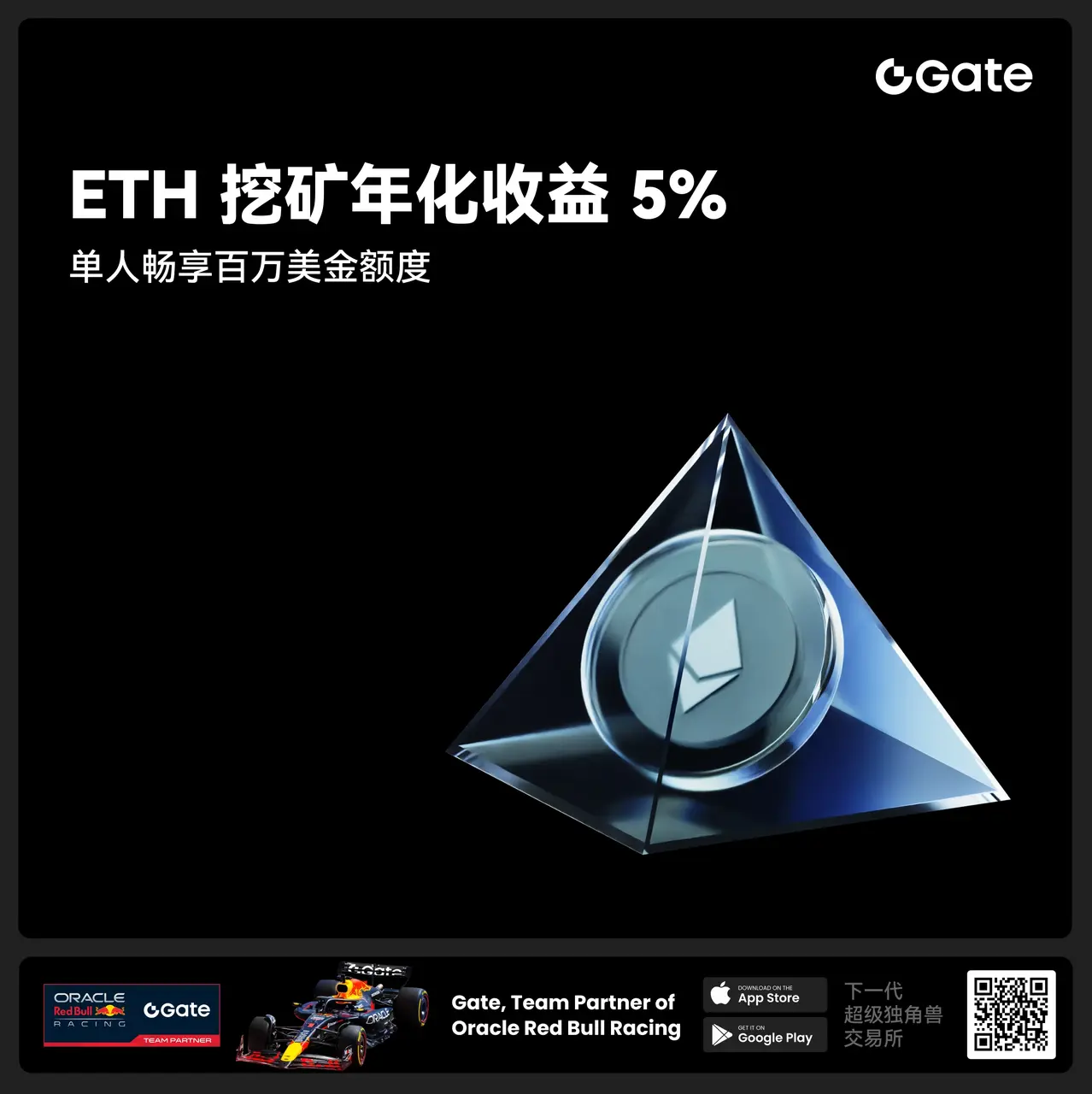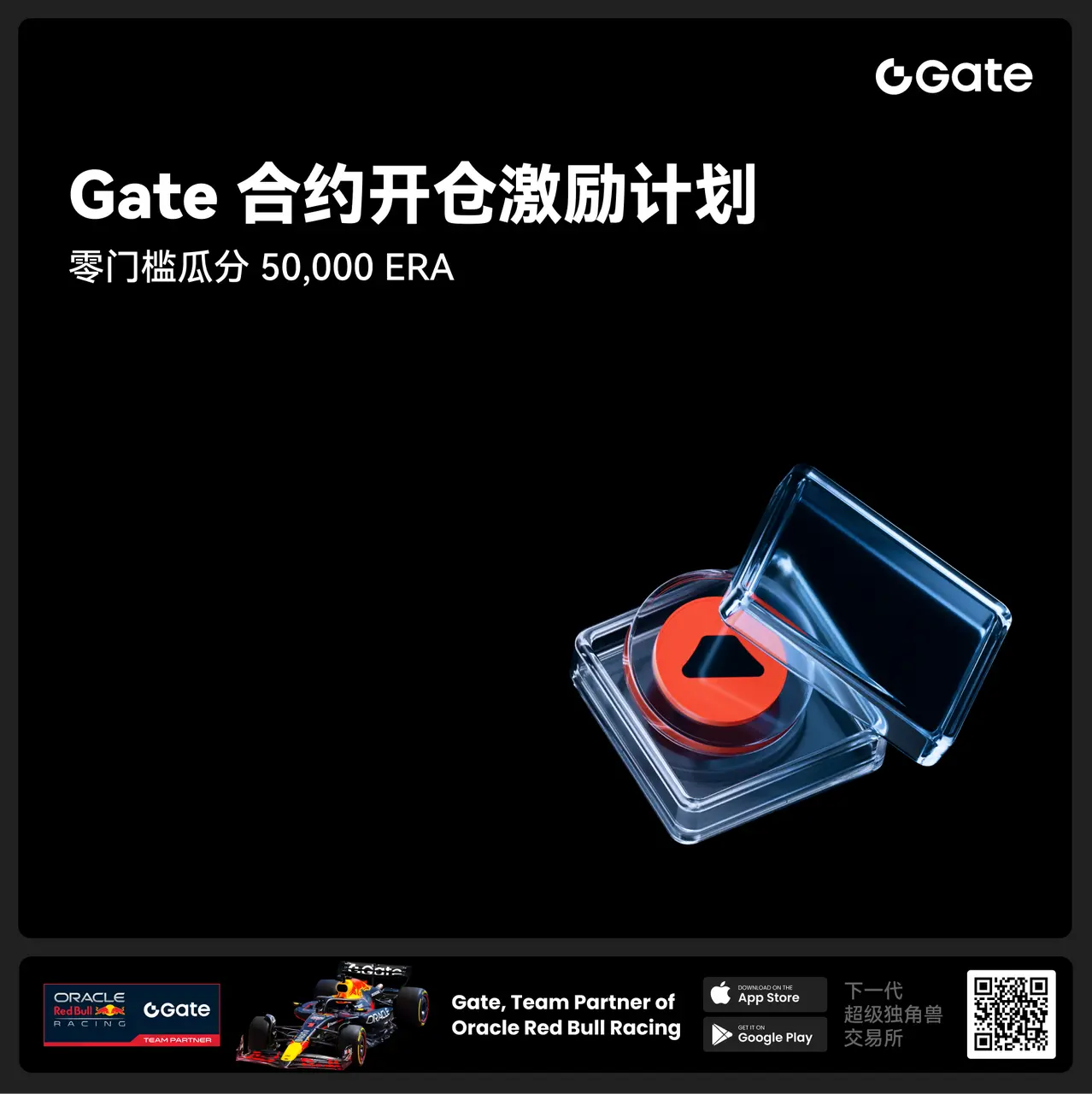- 话题1/3
14k 热度
33k 热度
17k 热度
6k 热度
174k 热度
- 置顶
- Gate 链上赚币:ETH 挖矿限时高收益!
✅ 年化收益近 5% + 额外奖励单人额度 1000 ETH
💎 最低 0.00000001 ETH 起投,无赎回期,随存随取!
立即上车,稳赚链上收益:https://www.gate.com/staking/ETH
- Gate 合约开仓激励计划火热上线!零门槛瓜分 50,000 ERA
开仓即有奖,交易越多奖励越多!
新用户享 20% 加成!
立即参与:https://www.gate.com/campaigns/1692?pid=X&ch=NGhnNGTf
活动详情:https://www.gate.com/announcements/article/46429
#Gate # #合约交易 # #ERA#
- 👀 家人们,最近你们都攒了多少 Alpha 积分啦?
空投领到了没?没抢到也别急,广场给你整点额外福利!
🎁 晒出你的 Alpha 收益,咱们就送你$200U代币盲盒奖励!
🥇 积分最高晒图用户 1 名 → $100 代币盲盒
✨ 积分榜前五优质分享者 5 名 → 各得 $20 代币盲盒
📍【怎么玩】
1️⃣ 带上话题 #晒出我的Alpha积分收益# 发广场贴
2️⃣ 晒 Alpha 积分截图 + 一句话总结:“我靠 Gate Alpha 赚了 ____,真的香!”
👉 还可以分享你的攒分技巧、兑换经验、积分玩法,越干货越容易中奖!
📆【活动时间】
8月4日 18:00 - 8月10日 24:00 (UTC+8)
- 🎉 #CandyDrop合约挑战# 正式开启!参与即可瓜分 6 BTC 豪华奖池!
📢 在 Gate 广场带话题发布你的合约体验
🎁 优质贴文用户瓜分$500 合约体验金券,20位名额等你上榜!
📅 活动时间:2025 年 8 月 1 日 15:00 - 8 月 15 日 19:00 (UTC+8)
👉 活动链接:https://www.gate.com/candy-drop/detail/BTC-98
敢合约,敢盈利
Walkman与比特币:从个人音乐到自主金融的革命
【币界】这是 Supply Shock 新闻通讯中的一个片段。当 Satoshi 构建 Bitcoin 时,他们站在巨人的肩膀上。Bitcoin 只能在1989年万维网出现后,于2009年问世,而万维网之所以如此普及,是因为20世纪70年代初微处理器的出现。这三项创新都是电报的回声。我在这里要告诉你,索尼的 Walkman 可能同样重要。
第一款索尼 Walkman 的发布并不完全在今天。昨天,1979年,索尼开始在日本销售 TPS-L2——一款蓝色的、口袋大小的便携式卡带播放器,在短短两年内成为全球文化现象。传说索尼联合创始人井深大(Masaru Ibuka)曾要求索尼的录音机部门设计一种设备,以便在长途飞行中听歌剧。一个秘密的工程师团队开始工作。他们拆开了索尼 TCM-100B,也就是 Pressman,这是一款便携式卡带录音机,可以用一只手操作,仅在一年前发布。Pressman 已经受到记者和商人的欢迎,用于录制语音备忘录,并能以 1.5 倍的速度播放内置扬声器的录音。
美国银行的创新图表指出了某些发明在人类人口历史上的位置。该图表将 Bitcoin 与脊髓灰质炎疫苗和 DVD 相提并论,但 Walkman 不在其中。在四个月内,在工程师 Kozo Ohsone 的带领下,索尼的团队用立体声放大器取代了 Pressman 的扬声器和录音电路,在同一底盘上生产出了原型机。一款便携式立体声卡带播放器,配有一副轻便的耳机。尽管索尼内部有不相信的人提出抗议,但第一批 30,000 台 Walkman 仅用了八周时间就在日本售罄,到 1980 年底,全球已售出 200 万台。
虽然之前已经有便携式音乐播放器的迭代产品,但索尼的 Walkman 迅速成为各行各业的必备品。《纽约客》在 1981 年 9 月描述说,他们看到"华盛顿的外交官、芝加哥的空姐、旧金山的缆车售票员和西雅图的幼儿,都戴着 Walkman 录音机或其仿制品。"
要了解情况:在 20 世纪 70 年代,拥有一个可以随身携带的个人音景是不可能的。制造一种能够做到这一点的设备并不是一个非常复杂的技术挑战……但根本没有经过验证的市场。
听起来是不是很熟悉?在 Walkman 之前,至少在家里以外和远离立体声音响的地方,成为你自己的 DJ 是根本不可行的。Walkman 改变了社会行为,人们第一次在公共场所、火车、公共汽车和飞机上用耳机将自己隔离起来。
这是一个较老的口号,但 Bitcoin 同样使成为你自己的银行成为可能,至少在把现金藏在床垫下或墙里之外。Bitcoin 已经改变了人们的经济行为方式,为一种从未为所有人服务的金融体系提供了一种替代方案。Walkman 和 Bitcoin 都面临着来自社会的抵制,批评人士称个人立体声音响是自我放纵和反社会的,是"我"这一代的配饰。Bitcoin 在其他方面几乎没有摆脱其与罪犯和欺诈者的文化内涵,尽管这是没有根据的。
通过某种视角,Walkman 可能为 30 年后 Bitcoin 的到来做好了文化准备,让我们逐渐接受我们可以成为我们自己的任何东西,无论我们在哪里。但以下是 Bitcoin 击败 Walkman 的方式:牛津英语词典花了整整九年时间才将"Walkman"作为一个主流英语术语收录。Bitcoin 用了一半的时间就做到了,与"twerk"和"emoji"一起。